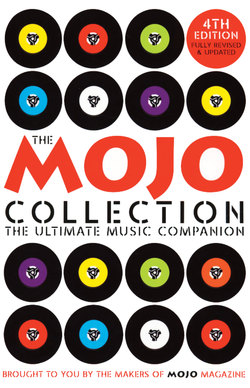Читать книгу The Mojo Collection - Various Mojo Magazine - Страница 145
На сайте Литреса книга снята с продажи.
Pentangle Sweet Child The UK’s folk rock supergroup make their definitive work.
ОглавлениеRecord label: Transatlantic
Produced: Shel Talmy
Recorded: The Royal Festival Hall; June 29, 1968; IBC Studios, London; September 1968
Released: November 1, 1968
Chart peaks: None (UK) None (US)
Personnel: Jacqui McShee (v); Bert Jansch (v, g); John Renbourn (v, g); Danny Thompson (db); Terry Cox (v, d, glockenspiel); Damon Lyon-Shaw (e)
Track listing: Live: Market Song; No More My Lord; Turn Your Money Green; Haitian Fight Song; A Woman Like You; Goodbye Pork-Pie Hat; Three Dances: i. Brentzel Gay; ii. La Rotta; iii. The Earle Of Salisbury; Watch The Stars; So Early In The Spring; No Exit; The Time Has Come; Bruton Town Studio: Sweet Child; I Loved A Lass; Three Part Thing; Sovay; In Time; In Your Mind; I’ve Got A Feeling; The Trees They Do Grow High; Moondog; Hole In The Coal
Running time: 75.51
Current CD: Castle CMDDD132 is a 2-disc 36-track collection which includes live versions and studio versions of songs plus numerous outtakes and alternate versions
Further listening: Basket Of Light (1969); Reflection (1971)
Further reading: Dazzling Stranger: Bert Jansch And The British Folk And Blues Revival (Colin Harper, 2000); www.jacquimcshee.co.uk
Download: Not currently legally available
Including two celebrated solo recording artists in Jansch and Renbourn, and a second-to-none rhythm section drafted in from previous spells with Alexis Korner and Duffy Power’s Nucleus, Pentangle were a supergroup from day one – and uniquely so in fusing together individuals and repertoire from both the folk and jazz/blues scenes of the day.
The group existed initially as a spare-time concern, playing almost exclusively at their own Sunday night club at the Horseshoe Hotel in Tottenham Court Road throughout 1967. At the start of that year Bert Jansch had filled a series of thousand-seater city halls on his own and many people, record label included, viewed his commitment to developing the group project bewildering.
It could indeed have been a disaster. There were a number of blown opportunities and false starts in trying to move beyond the Horseshoe before the arrival of New York publicist Jo Lustig, who became the group’s manager in early 1968. He immediately oversaw the release of a first album, The Pentangle, secured substantial print, radio and TV coverage and curtailed all group and solo live appearances, invariably in small clubs, to allow for their relaunch as a concert hall act – a scam that worked perfectly.
The Festival Hall concert on June 29 was thus widely anticipated and, as Melody Maker’s review concluded, ‘Will go down on record as a great success and a highlight in the group’s career’. This was literally correct: the show was recorded for this, the second album, and featured an extraordinarily wide-ranging repertoire, utilising the quintet’s virtuosic membership in a whole range of solo, duo, trio, quartet and full band combinations. Never again would the balance between them be so perfect or the interplay so fresh and dynamic. Traditional and contemporary folk songs shared space with modern jazz covers, medieval dance pieces, blues and group originals closer to the folkish end of the rock underground than the whimsical style of their perceived rivals, the Incredible String Band.
The live half of the set includes most of the concert bar first-album material (pointless to issue at the time), a couple of solo tracks and a failed crack at Sweet Child – a complex piece which was subsequently done full justice for the equally eclectic studio half. Conversely, Haitian Fight Song was tried in the studio but the live version retained. The group reached a commercial peak with the UK Number 5 LP Basket Of Light the following year, but creatively and critically Sweet Child was the apogee.
